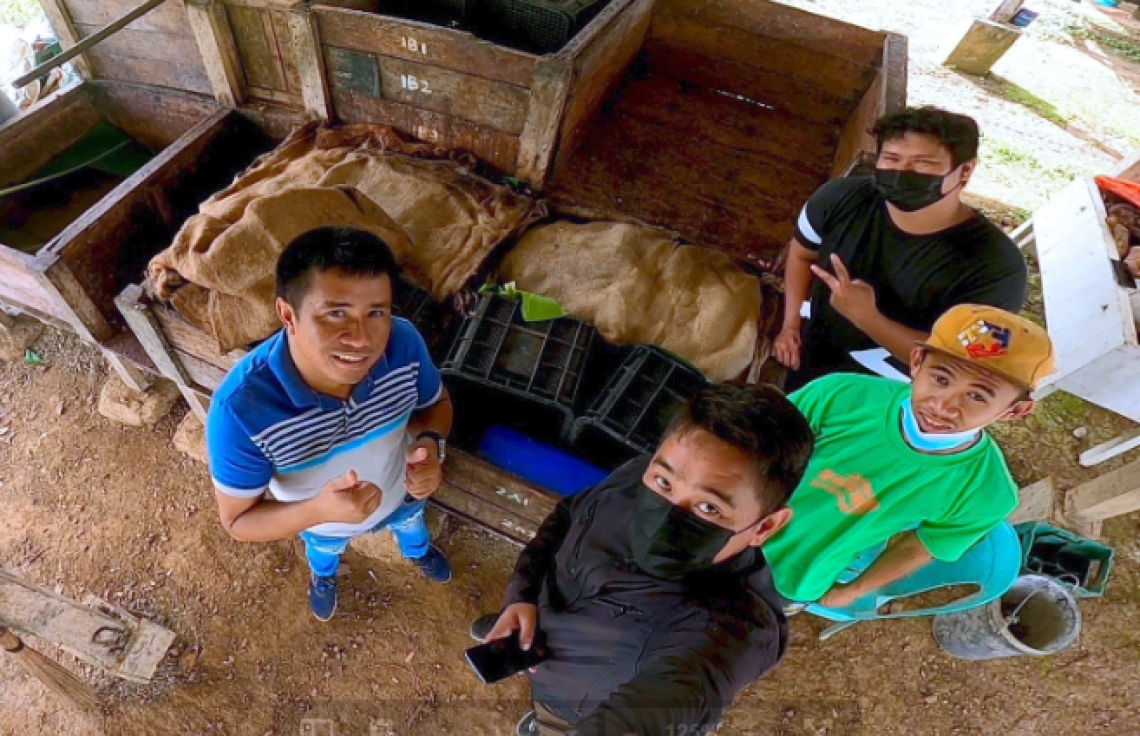Make your 2X MATCHED gift today!
This week only: Every $1 will be matched with $2 to enable women worldwide.
This week only: Every $1 will be matched with $2 to enable women worldwide.
Posted on 01/06/2022

In March 2021, a year after the COVID-19 pandemic hit, my visits to Farmer-to-Farmer Capacity-Building of the Coconut Subsector (F2F COCOS) host organizations in some parts of Mindanao in the Philippines finally resumed. Naturally, I was worried about contracting the virus and had to continuously adjust travel plans due to the constantly changing travel restrictions imposed by the government or local communities. But I knew I had to prepare our host organizations for their assignments with F2F volunteers under the new environment. It was also my time to onboard new host organizations and had to do so in person which I still consider the best way as it builds a long time and successful rapport. I had to coordinate ahead of time with the hosts, prepare travel documents that included a negative COVID-19 screening result, and identify an agreeable time to meet so as to not cause any inconvenience to the host organization’s daily business and ensure the safety of all.
In this blog, I wanted to share some of my experiences from the field as I traveled through Surigao del Sur, Agusan del Norte, Agusan del Sur, Davao de Oro, Davao City and North Cotabato from March 2021 to December 2021.
While host organizations differed in their ability to participate and absorb volunteer assistance as part of the F2F COCOS program, I was not surprised to note the attention placed on sustainability of operations during the pandemic. While some hosts had a certain degree of resilience and sufficient capacity and resources, most were not as lucky. A visit to a host organization that was almost at a breaking point comes to mind.
Despite the challenges faced, they persevered in looking for new ways to serve their clients. Lack of funding did not diminish its determination to serve microentrepreneurs and smallholder farmers. They tapped their MFI program partner and for now focused on capacitating youth clients with business skills. For me, that was truly inspiring. Another small cooperative with a multi-million loan receivables, faced a tremendous encumbrance in its production loan. Instead of folding in, it focused on strengthening its trading and marketing of cacao products. Calls with various project donors were organized for advice and the development of new funding opportunities. The cacao trading operation and chocolate processing not only ended up in producing better-quality products, but was able to expand to new markets. Their coconut trading had also gained new grounds. The organization had noted that crying over spilled milk would only have helped relieve emotions, but taking the time to diversify income and improve on current production and processes ended up helping fill the coffers.
In the past, I wasn’t always successful in getting the organization’s full commitment and engagement in the program, but I noticed that the hand-holding we were able to provide during these difficult times may go a long way. The pandemic allowed us to deliberately build face-to-face interaction, targeted participation and deliver on some immediate and urgent needs of the organizations we serve. A few outcomes of these engagements come to mind: following the recommendations of an F2F volunteer, a cooperative was able to set-up a risk management committee and roll out a risk assessment tool, a need dictated by the pandemic. This cooperative was also able to improve its cacao beans fermentation and drying process resulting in competitive fermented cacao beans and chocolate and reaching new markets. The recommendations and assistance from another volunteer led to a significant reduction of loan default ratio for a cooperative leading to the achievement of their desired 5% portfolio at risk (PAR) and implementation of an updated management information system capable of generating detailed reports per loan collector.
Amidst these small wins, unfortunately, in October 2021, I succumbed to COVID-19 infection while on the ground. I was not able to go home to my family because I feared infecting my children. One of our hosts, FRIEND Foundation, allowed me to self-isolate in their training center which was temporarily closed because some of their own staff had contracted the virus. During the 14-day isolation, I had several anxiety attacks. While it was emotionally grueling at times, I knew I had to stay strong. And I was fortunate to be able to do so. And I can’t thank the FRIEND Foundation enough for allowing me the space and the care during one of my scariest and most difficult times.
In 2022, with a fervent hope that travel will be made safer, I expect to reach more host organizations and pave the way to more F2F COCOS collaborations. And in these visits, I hope to hear more stories of impact that will further fuel my passion with my work as a Senior Training and Field Operations Officer.